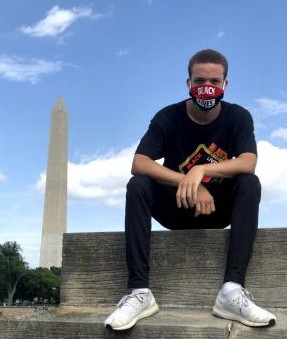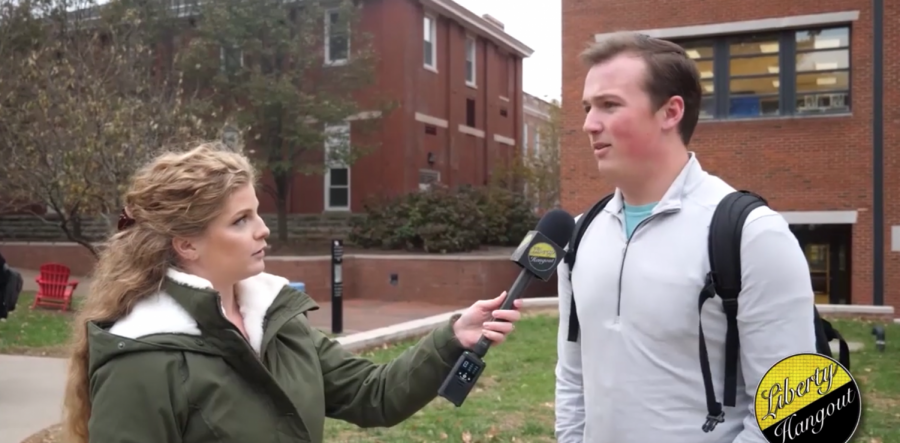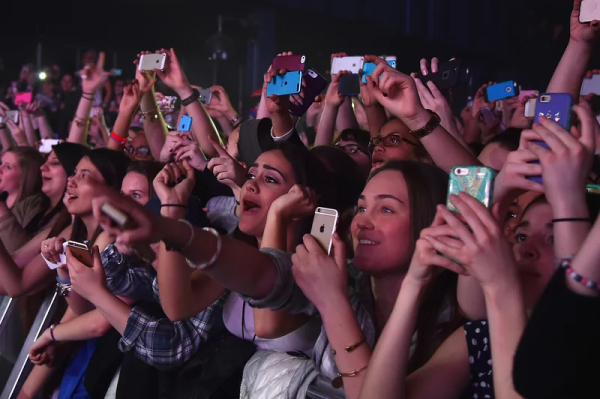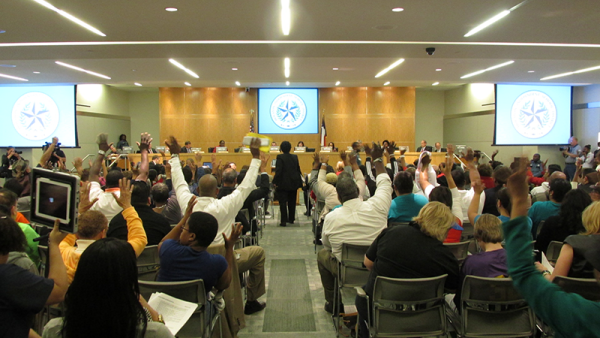Political Discussions Need to Be Regulated on School Campuses to Prevent Hate Speech
This picture shows Kaitlin Bennett on a school campus interviewing students.
Free speech is heavily discussed in our country today. Of course, we are well versed with our First Amendment Rights. Our First Amendment gives all people the right to freely express themselves without government persecution. However, with the openness of the news, it has turned everyone into a political commentator. Many people want to participate in political discussion, whether it be on social media, in a classroom, or at the dinner table with estranged family members. Politics are obviously very divisive, especially in America, and its deliberation can lead to verbal and physical altercations.
All of this poses a relevant question for our campus: Should people be able to voice political opinions on campuses during the instructional time? When and where is the right time to talk about tax distribution or universal healthcare?
Political opinions disrupt the learning of students. When faced with the opportunity to make a statement, students may shirk the planned instruction, and turn the classroom into a political war room.
An example is the Ohio University protest against Kaitlin Bennett visiting with her news site. Kaitlin Bennett, also known as “Gun Girl” on many media sources, is a 24 year old, self-appointed journalist. She is known for her strongly right-wing opinions and expressions. She came into fame in 2018, after taking her graduation photos at Kent State, her alma mater, with an open AR-10 on campus. Since then, she has created a brand for herself on media platforms as an extreme conservative, slandering liberals and anyone disagreeing with her. Now, she runs a media site called Liberty Hangout, where she posts heavily opinionated articles and videos. She also takes the time to visit college campuses and interview them, asking questions about debated political topics. These include bathroom rights for transgender persons and gun rights.
On February 17, 2020, hundreds of students gathered in the middle of the Ohio State campus to contest her visit.There were large huddles, people chanting, and food being thrown. She then used that to victimize herself, saying they falsely accused her of being racist, and demanded an apology from the school. This poses an issue because her fiery and polarizing political views have distracted the students from regular activity.
Bennett is a prime example of how free speech can be taken advantage of to carry on a personal agenda, while offending every person in her path. The natural reaction, when faced with someone with her attitude, is to argue back and retaliate. However, all that causes is conflict and possible violence: things that should definitely not be seen on a campus.
The solution is clear; regulating the amount of expression that is allowed on campuses. This would keep demonstrations from getting out of hand and prohibiting students from learning. Schools may take it upon themselves to put certain framework in their student handbooks or constitution. There should be rules set.
While universities are places of learning and idea sharing, which provide platforms for students to understand multiple historical and modern perspectives, that should not inhibit learning. It is also believed that Bennett’s speech should not be restricted because that violates her 1st Amendment Rights. However, freedom of speech should not be used to conduct hate speech. Hate speech should not be tolerated in public, especially at schools, where people from all different backgrounds congregate to learn.
I urge schools to take reexamine their rules regarding political expression on campus.
Your donation will support the student journalists of Carnegie Vanguard High School. Your contribution will allow us to cover our annual website hosting costs and fund field trips, competition fees, and equipment. We appreciate your support!

Hey y'all! I'm Ash, and I'm a staff writer for Upstream News. It's a great way for me to stay updated and connected with the school and the world. ...











